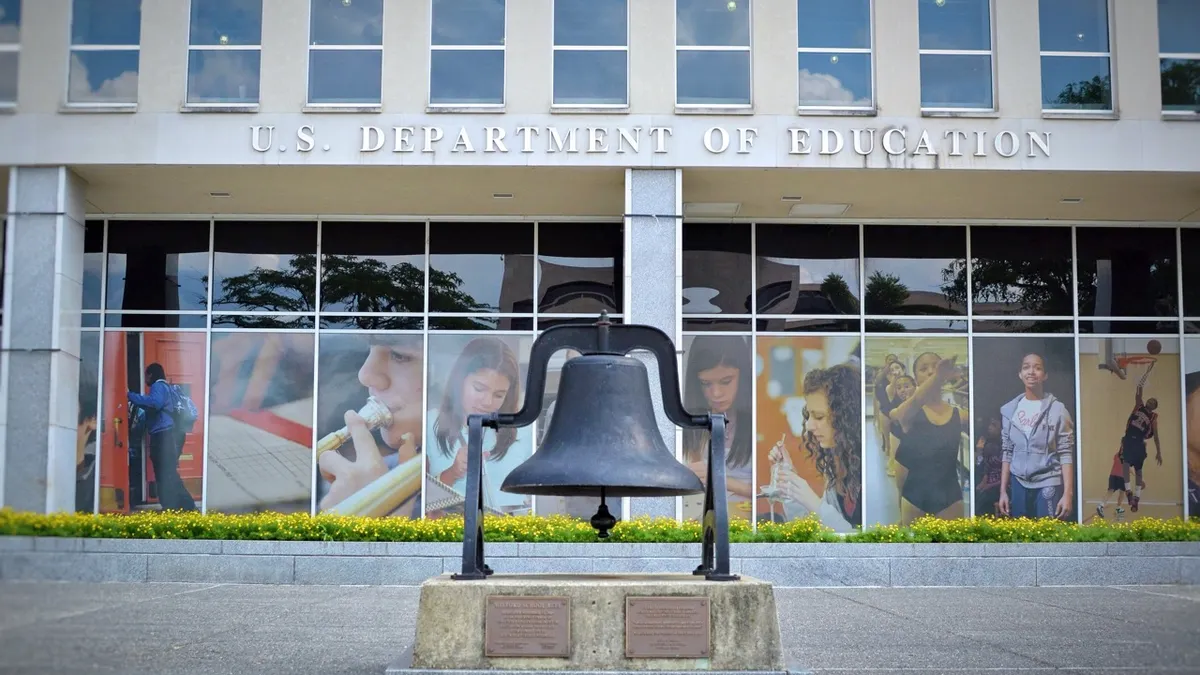Dive Brief:
- The National Federation of the Blind, the Council of Parent Attorneys and Advocates, and the NAACP have initiated a lawsuit arguing that changes to how the U.S. Department of Education's Office of Civil Rights processes complaints were “illegal and contrary to the purpose of the office,” NPR reports.
- The lawsuit focuses on four aspects of the new policy for processing cases submitted to the OCR. The office now dismisses cases it considers forming a pattern and which may include multiple requests by the same party. The office may now dismiss a case against more than one defendant if the investigation would place an “unreasonable burden” on resources, and there is now no appeals process in place. Finally, the policy changes were made without allowing for public comment or review.
- Advocates for the changes say they are part of the OCR’s attempt to improved management of its docket as the department has inherited a large case backlog from the previous administration, which often delayed the time for these cases to be resolved.
Dive Insight:
The new policy changes are of concern to some parents and advocacy groups because they fear an increase in dismissals of lawsuits without proper examination. Not only does the policy restrict the cases the department examines, it also does so without the possibility of appeal, an aspect of the cases that appears to be of most concern.
While the new policy has its issues, the stated intent behind the policy was, in part, to address the “extraordinary backlog” of cases left over from the Obama Administration, a time when the office reportedly spent time focusing on more complex cases that took longer to resolve, causing extended delays in dealing with individual cases. The current administration is reportedly scaling back the bigger investigations, such as compliance reviews, and focusing on reducing the backlog of individual cases. However, the department has also scaled back staff since Secretary of Education Betsy DeVos took the lead, an issue that can only cause further delays.
These issues play into larger questions of education responsibility, such as the roles that the state and federal government play. The U.S. Supreme Court, in the landmark San Antonio Independent School District v. Rodriguez case, ruled that the Constitution does not guarantee a fundamental right to education. However, since the ability to read is necessary for our form of government to operate properly, the notion that literacy is a constitutional right is now being challenged in the courts.
The takeaway for most students, parents and school administrators is that individual access issues, especially those involving ways to provide equal access to instruction for students with physical disabilities, are best handled at the local or state level. Whether it is because of policy decisions or practical implementation, filing an individual case will likely not be resolved in time to help a student get the access they need. And involvement in a federal lawsuit is likely to drain resources from a school district. With the growth in technology, there are more resources and assistive devices available to support students with disabilities. States can also help by funding these resources to comply with federal guidelines.





 Dive Awards
Dive Awards






